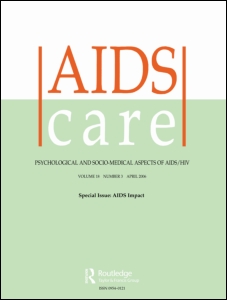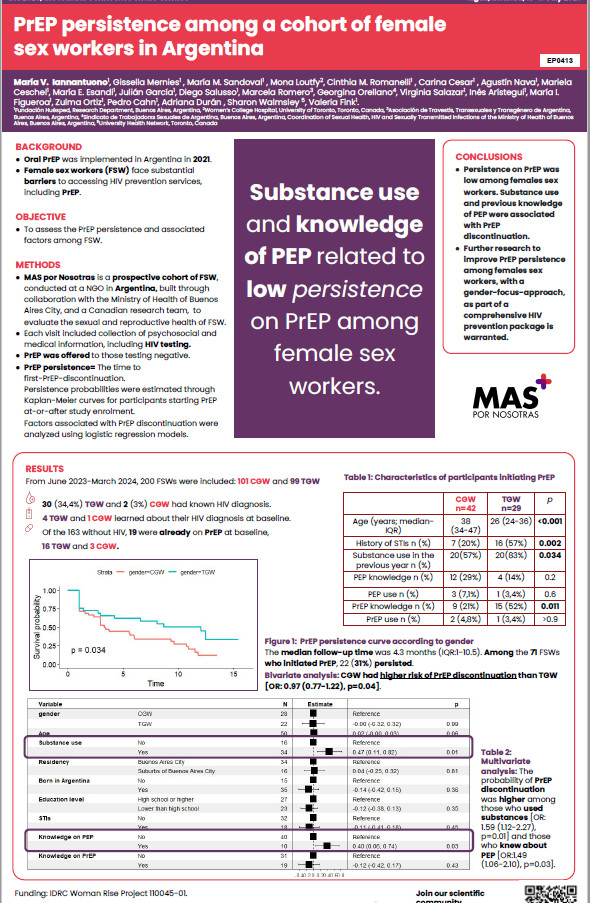Resumen
Female sex workers (FSWs) experience syndemic factors (e.g., polydrug use, hazardous alcohol consumption, client-perpetrated violence, depression, and sexually transmitted infections) that often heighten vulnerability to HIV and limit healthcare utilization. We hypothesized that syndemic factors will limit FSWs’ uptake of pre-exposure prophylaxis (PrEP). From 2016 to 2017, 295 HIV-negative FSWs were enrolled in a behavioral HIV prevention trial in Tijuana and Ciudad Juarez, Mexico, underwent STI testing, and completed surveys on syndemic factors and perceived barriers to PrEP use. Syndemic scores (0–5) were calculated by summing syndemic factors. Latent class analysis (LCA) was used to identify homogeneous classes with respect to perceived barriers to PrEP use. We identified four classes: (1) perceived healthcare access barriers (8.3%), (2) perceived financial barriers (18.7%), (3) high level of perceived barriers (19.9%), and (4) low level of perceived barriers (53.0%) to PrEP use. Those experiencing three (adjusted odds ratio [aOR] = 3.63, 95% confidence interval [CI] = 1.24–10.67) and four or five (aOR = 6.30, 95% CI = 1.70–23.35) syndemic factors had a higher odds of membership in the class characterized by a high level of perceived barriers than in the class characterized by a low level of perceived barriers. Addressing syndemic factors may maximize PrEP’s impact among FSWs along Mexico’s northern border.






